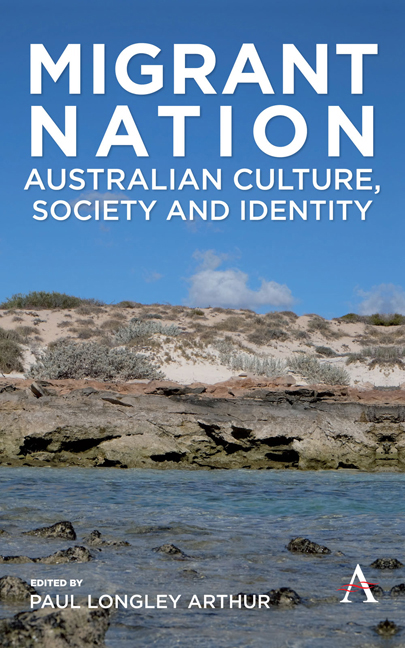Book contents
- Frontmatter
- Contents
- List of Figures
- 1 Introduction: Transcultural Studies in Australian Identity
- 2 Remembering Aboriginal Sydney
- 3 Files and Aboriginal Lives: Biographies from an Archive
- 4 Writing, Femininity and Colonialism: Judith Wright, Hélène Cixous and Marie Cardinal
- 5 The Staging of Social Policy: The Photographing of Post-War British Child Migrants
- 6 Writing Home from China: Charles Allen's Transnational Childhood
- 7 Australian? Autobiography? Citizenship, Postnational Self-Identity and the Politics of Belonging
- 8 A Nikkei Australian Story: Legacy of the Pacific War
- 9 Displaced Persons (1947–52) in Australia: Memory in Autobiography
- 10 Between Utopia and Autobiography: Migrant Narratives in Australia
- 11 Vietnamese–Australian Life Writing and Integration: The Magazine for Multicultural and Vietnamese Issues
- 12 Heroes, Legends and Divas: Framing Famous Lives in Australia
- List of Contributors
- Index
3 - Files and Aboriginal Lives: Biographies from an Archive
Published online by Cambridge University Press: 10 May 2018
- Frontmatter
- Contents
- List of Figures
- 1 Introduction: Transcultural Studies in Australian Identity
- 2 Remembering Aboriginal Sydney
- 3 Files and Aboriginal Lives: Biographies from an Archive
- 4 Writing, Femininity and Colonialism: Judith Wright, Hélène Cixous and Marie Cardinal
- 5 The Staging of Social Policy: The Photographing of Post-War British Child Migrants
- 6 Writing Home from China: Charles Allen's Transnational Childhood
- 7 Australian? Autobiography? Citizenship, Postnational Self-Identity and the Politics of Belonging
- 8 A Nikkei Australian Story: Legacy of the Pacific War
- 9 Displaced Persons (1947–52) in Australia: Memory in Autobiography
- 10 Between Utopia and Autobiography: Migrant Narratives in Australia
- 11 Vietnamese–Australian Life Writing and Integration: The Magazine for Multicultural and Vietnamese Issues
- 12 Heroes, Legends and Divas: Framing Famous Lives in Australia
- List of Contributors
- Index
Summary
Archives are already stories.
(Burton 2005, 20)Anthropologist and historian Ann Stoler (2009, 1) describes archives as ‘active, generative substances with histories[, …] documents with itineraries of their own’. She urges scholars to engage with them as ‘cultural artifacts of fact production, of taxonomies in the making, and of disparate notions of what made up colonial authority’ (Stoler 2002, 91).
This chapter takes up her challenge in a study of the archive of the West Australian Department of Indigenous Affairs (DIA) archive. This sprawling collection is a storehouse of stories documenting 74 years of state power over Aboriginal people. This chapter traces the archive's history of development as an instrument of colonial hegemony and control from the early 1900s, in the context of the lives of its administrators, and outlines the controversies that followed the collection's release for public access in the 1970s. Captured in its files are thousands of stories about Aboriginal people, and this chapter examines some of those stories that have inspired works by Aboriginal writers in theatre, history, literature and film.
As an approach to the task of writing archival histories, renowned historian John Randolph (2005, 210) proposes biography as a ‘heuristic metaphor’, since archives ‘lead social lives and have character, have histories of production, exchange, and use across and among a number of social and institutional settings’, and they connect with lived experiences of the archivists and researchers. Anthropologist Nicholas Dirks (2002, 58) suggests an ethnographic frame for studying how the archive functions as a ‘discursive formation […] that reflects the categories and operations of the state itself [and how] the state literally produces, adjudicates, organizes and maintains the discourses that become available as primary texts of history’. This chapter combines both approaches in a ‘biographical ethnography’ of the DIA archive and the myriad stories contained within. The archive's files document the institutionalized racism and totalitarian controls exercized over Aboriginal peoples in Western Australia from 1898 to 1972. For authors Lauren Marsh and Steve Kinnane (2003, 113) the archive is the relic instrument of a ‘repressive regime’ in the manner of the Stasi records of the former East Germany. Archivist Eric Ketelaar describes such archives as the ‘record-prison’ of ‘womb-to-tomb’ surveillance (Miller 1971, cited in Ketelaar 2002, 228).
- Type
- Chapter
- Information
- Migrant NationAustralian Culture, Society and Identity, pp. 37 - 56Publisher: Anthem PressPrint publication year: 2017



